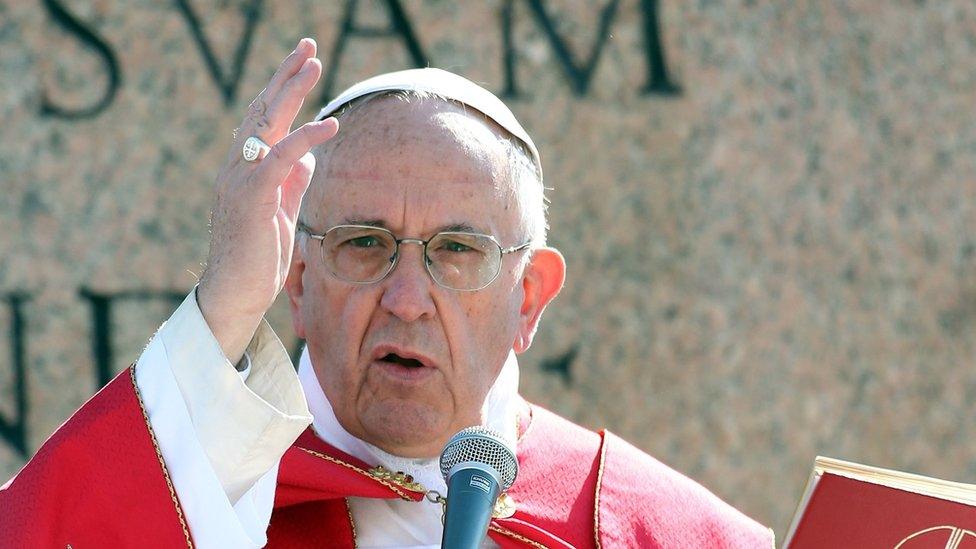Pope Francis set to address oil firms over climate change
- Published
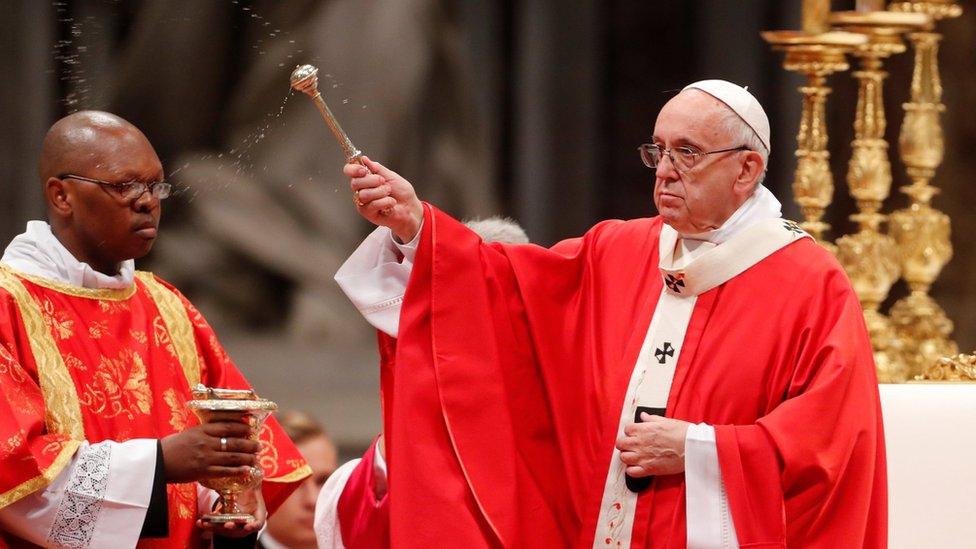
Pope Francis has said "our common home is falling into serious disrepair"
The Vatican might seem an odd place for a gathering of oil executives.
But leaders from some of the world's biggest energy companies have gathered in the Holy See this weekend.
Pope Francis is expected to address the group on Saturday on a subject he has made one of his signature issues: climate change.
Companies including ExxonMobil, BP, Royal Dutch Shell, Norway's Equinor and Pemex have sent representatives.
Under Pope Francis' leadership, the church has moved to confront the business world on a range of subjects from poverty to tax havens and complex financial securities.
He put climate change front and centre back in 2015, when he devoted his second encyclical to the topic. But there has been no detail yet as to the precise message he will deliver to his room of high powered executives.
In the 2015 missive, he described the issue as "one of the principal challenges facing humanity in our day", and one with particularly big implications for the poor.
At that time he said the international political response had been ineffective and pledged to use his pulpit to draw attention to the issue.
"We need only take a frank look at the facts to see that our common home is falling into serious disrepair," he wrote. "I urgently appeal, then, for a new dialogue about how we are shaping the future of our planet."
The conference titled "Energy Transition and Care for Our Common Home" has been organised by the University of Notre Dame in South Bend, Indiana.
The university declined to say what was on the agenda, saying participants had requested confidentiality in order for frank conversations.
Seamus Finn is chair of the US-based Interfaith Center on Corporate Responsibility, which has pressed firms like ExxonMobil to do more to address climate change, including by investing in renewable energy companies.
He said he expects the meeting will focus primarily on building trust and identifying areas where people can work together on the issue.
"[The Pope] hasn't been prescriptive on this," he said. "He says, 'Look, it's an important issue about the future of the planet ... so let's pull up our sleeves here."
Though Rev Finn is not expecting any miracles, he said he was a bit surprised to see some of the attendees.
"These CEOs don't necessarily want to go someplace where they're going to be yelled at," he said. "But as I said when Pope Francis calls and the Vatican calls, it is hard to say no, even if you are a CEO."
Oil and gas
Analysts expect consumption of oil and gas to grow, remaining the world's largest sources of energy for the foreseeable future.
ExxonMobil alone has announced plans to increase oil production in the US and start more than two dozen projects worldwide, adding more than 1 million oil-equivalent barrels per day.
The firm says it has taken steps to reduce emissions in its own operations, spending $9bn on the effort since 2000.
But it maintains that growing demand for energy cannot be met by alternatives like wind and solar power alone.
Renewable sources provided about 18% of energy consumed in 2015, with forms like solar, wind and hydropower representing less than 10%, according to the International Energy Agency, external.
That share is expected to grow to just 15% by 2030, it said.
The US Energy Information Administration expects, external oil and other liquids to continue to account for almost a third of energy through 2040.
- Published8 August 2017
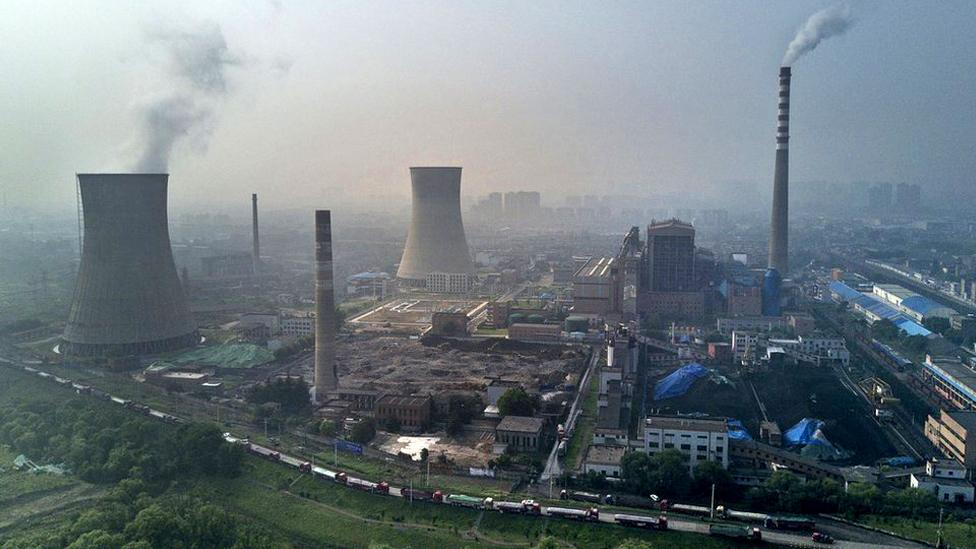
- Published7 June 2018
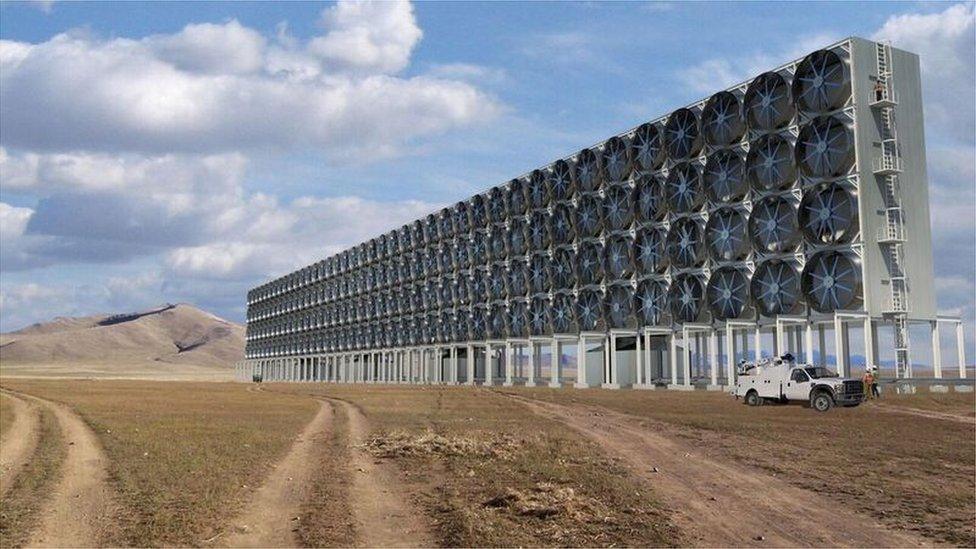
- Published11 September 2017
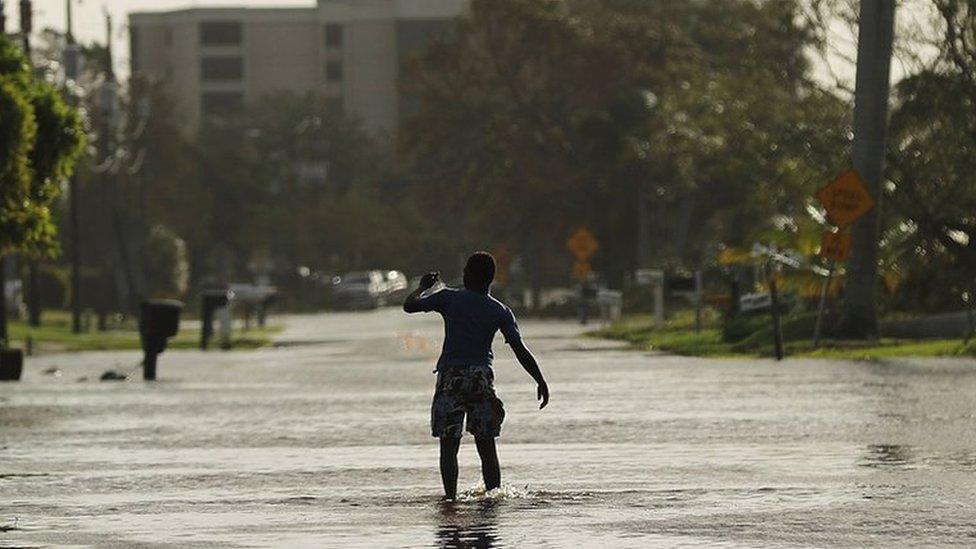
- Published3 April 2018
